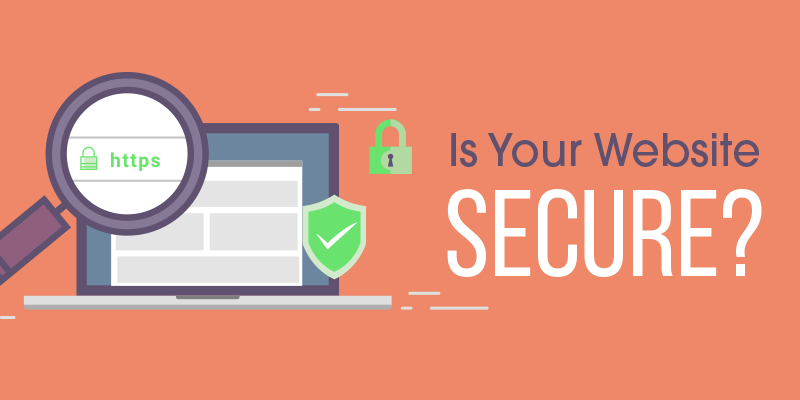Get a SSL Certificate
A recent report showed that 91 percent of users who peruse the Internet come across a security alert, with about half ignoring the alert and half abandoning the search. What do these alerts mean, and why should a developer know what it means?

SSL is a common acronym thrown around in the industry, and it stands for Secure Sockets Layer. This is a type of encryption technology created by Netscape. Its purpose is to make the connection between your server and a client’s browser safe and secure, allowing sensitive information like credit card purchases to send without the worry of data tampering.
To get this kind of protection on your website, you need an SSL certificate installed on the server and identifies you. Using this is generally indicated by a green address bar or an icon of a padlock on a web browser. It is also possible to securely visit a website by changing the HTTP in the URL to HTTPS.
Millions of businesses use these certificates on their websites to make them secure and let customers put trust in them. To get a certificate, you must contact a certificate authority.
When you purchase a certificate to secure your website, you will need it to be digitally signed by another certificate that your user’s web browsers already have stored. By doing this, the web browser will automatically accept the certificate since it has the signature of one it already trusts. If it lacks this signature or has missing links in the chain, the web browser will warn the user that your site may not be trusted.
If you run a website where your customers are expected to submit sensitive financial information, such as credit card numbers or similar information, you need an SSL certificate to secure the connection.
It’s a fact that customers will not trust your website without this certificate. In fact, about 70 percent of shoppers online abandon the order when they feel they do not trust the transaction. Of those, 64 percent indicated that having a trust mark would have given them the trust they required. Having an SSL certificate and a site seal on your website could stop you from losing money from people abandoning the website
The main reason that SSL exists on a server is to keep everything sent between it and the browser encrypted, ensuring only the intended recipient can understand the information that was sent. This is very important since any computer could eavesdrop and intercept the data, including usernames, passwords, social security numbers, or credit card information if not encrypted using an SSL certificate. With this technology installed, nobody else can read it except to serve that the customer sends the information to, effectively stopping thieves and hackers.
In addition to providing encryption, an SSL certificate also offers authentication for a server, reassuring customers that you are the one receiving their information and not a criminal’s server. This is especially important since the data sent between the server and web browser often goes through several computers, any one of which could try to pretend to be your website and steal information. The only way to get around this is to get an SSL certificate from a trusted authority and public key infrastructure.
SSL providers are important since trusted ones will only give out an SSL certificate after a company has verified and gone through many identity checks. Some kinds of certificates, such as EV SSL certificates, require more hoops to jump through than others. How can you tell when a provider can be trusted? There are plenty of companies that have a reputation out there, such as VeriSign.
At the end of the day, web browsers offer visual cues, such as a green address bar and a lock icon, to allow visitors to see when they have a secure connection. This means that if they are to see these cues, they will be more likely to purchase and submit information through your website. Without it, they will be more likely to abandon the browsing, causing you to lose out on any sales without having your SSL certificate installed onto your server. This means you want to get an SSL certificate to instill trust into your prospective customers, which can save you a major headache.
Of course, it is also worth mentioning that SSL certificates can also protect against phishing attempted by criminals. These emails are sent by potential thieves who try to pretend to be your website. Typically, they send a link in the email that directs to their own website or use an attack that grabs information as it directs to your website. Since it is difficult for them to get an SSL certificate themselves, it is difficult for them to make a full impersonation of your business. This means users are less likely to fall victim to this attack if they do not see the trust indicators within their web browsers, such as the padlock icon or the green address bar.